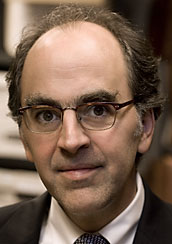Wrongful convictions affect all New Yorkers
03.05.12
Innocence Project Policy Director Stephen Saloom is in Albany, New York, today to speak with legislators about passing wrongful conviction reforms. Saloom, Innocence Project Senior Policy Advocate for State Affairs Rebecca Brown, exoneree Steven Barnes, and Barnes’ mother, Sylvia Bouchard, are urging senators to pass a bill that would help prevent false confessions and eyewitness misidentifications. To learn more about the legislation, read Saloom’s Sunday op-ed from the
Buffalo News
:
Witness misidentification led police, prosecutors and a jury to deem Anthony Capozzi guilty of two terrifying rapes in the Buffalo area — despite the fact that he had absolutely nothing to do with either crime. While Capozzi was wrongly incarcerated, the real perpetrator, Altemio Sanchez, went on to commit three murders in Buffalo.
What caused the system to get it so wrong?
The Innocence Project has examined the nation’s 289 DNA exonerations to identify what caused these horrible miscarriages of justice to identify the best solutions for preventing them. It turns out that eyewitness misidentification is the leading factor, contributing to 75 percent of the cases later overturned by DNA. False confessions have played a factor in roughly 25 percent of the cases nationally and an astonishing 44 percent of New York’s wrongful convictions. These are clearly investigative shortcomings that we need to address.
People needn’t take the Innocence Project’s word for this. In 2009, the New York State Bar Association’s Wrongful Conviction Task Force, co-chaired by a sitting district attorney and a defense lawyer turned judge and composed of stakeholders from across the state’s criminal justice system, identified improved eyewitness identification procedures and videotaping interrogations as primary reforms. These recommendations were mirrored by New York State Chief Judge Jonathan Lippman through his Justice Task Force as well as the District Attorneys Association of New York State.
While these recommendations should be persuasive to our criminal justice policy leadership, the Assembly stands alone in supporting them. In fact, the Senate recently rejected a number of the recommended reforms that would prevent wrongful convictions, and the governor, while expressing interest, is still educating himself on these issues.
When wrongful convictions happen, real perpetrators remain free. New York State’s 27 wrongful convictions proven by post-conviction DNA testing have so far enabled identification of the real perpetrators in 11 of those cases. Seven of those real perpetrators are proven to have committed an additional six murders, two attempted murders and three rapes while innocent people served their time.
Legislatures across the country—including our neighbors in Ohio, New Jersey and Connecticut, as well as Texas and North Carolina, for example — have taken affirmative steps to prevent wrongful convictions.
With more wrongful convictions proven by DNA evidence than almost any other state, isn’t it time the New York Senate invested in improving the criminal justice system, too?
Stephen Saloom is the policy director for the Innocence Project, a national litigation and public policy organization dedicated to exonerating wrongly convicted individuals through DNA testing and reforming the criminal justice system to prevent further injustice.
Leave a Reply
Thank you for visiting us. You can learn more about how we consider cases here. Please avoid sharing any personal information in the comments below and join us in making this a hate-speech free and safe space for everyone.
November 23, 2017 at 6:41 am

I was locked up a whole year 2015 an just realesed no court dates or anything. And since the cop that had arrested me got brought up on multiple charges one being impersonating a cop. I can be reached at 6014795727